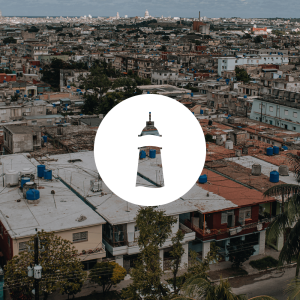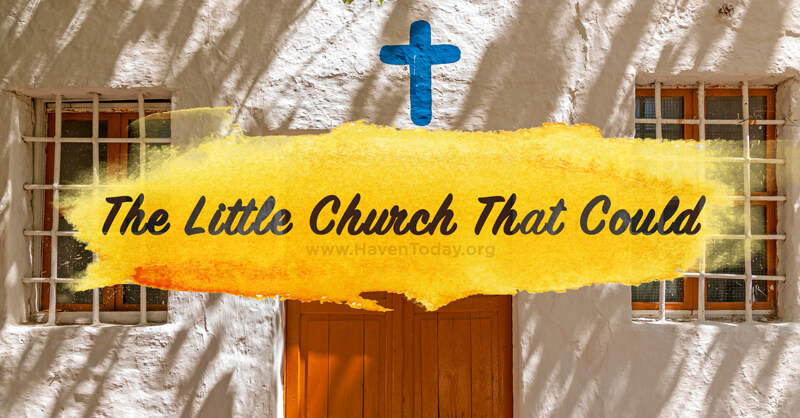When the school bus pulls up to the curb at 6:31am and unloads its cargo, the sound of unbridled joy and excitement is almost loud enough to drown out the ocean. It is Easter Sunday down by the beach, and though the rising sun is hidden behind a heavy cloud, its warmth blown away by a chilly breeze, the newly arrived congregation is buzzing. This is Cuba after all.
But things haven’t always been this way for the good people of an evangelical Presbyterian church in Varadero. There was a time when the flame of the church grew so faint that it might have been extinguished at any point.
And yet, thanks to one ordinary woman’s persistence and one gifted theologian’s humility, that flame remained lit.
The story starts more than half a century ago in the early 1960’s. The Revolution had turned Cuba into a socialist state and members of the overthrown regime were routinely executed on television. The country was officially declared atheist and Christians found themselves the victims of anything from mild discrimination to extreme persecution.
Like so many other churches in the country, this church, located in what is today a tourist beach hotspot, witnessed a mass exodus. Almost overnight its fifty-people-strong congregation—pastor included—either fled to the US or abandoned their faith and joined up with the Castro regime.
All of them, that is, except Rita Rodriguez.
A single woman in her sixties, Rita chose not to flee or denounce Christ. Instead, she remained faithful. Even when the church’s main building was confiscated by the state, she refused to back down. She kept her faith public and her church attendance uninterrupted. Every Sunday she unlocked the one room the church had been allowed to keep. There she prayed, worshipped, and studied the Bible. It didn’t matter that there was no pastor and no choir to join her.
Rita was not deterred that her voice was the only sound echoing around the room. She knew the regime had declared churches without any members should be permanently shut down, and she had heard of other congregations where it had actually happened. And so she was certain that if she missed a single Sunday, there might never be another church in Varadero again.
The news of Rita’s commitment spread, reaching thirty miles away to the town of Matanzas, and the ears of one pastor theologian named Sergio Arce Martinez. Martinez was a brilliant man with a PhD from the old Princeton Theological Seminary, and he was widely regarded as the foremost theologian in Cuba at the time.
As a high profile Christian leader in a country where Christians were being sent to work in camps, Martinez chose his battles carefully. As a husband and a father, what little time he had at home was precious. He likely had plenty of better things to do than make the uncomfortable, hour-long bus ride to Varadero every Sunday and preach for a congregation of one. But when the state ruled that every church must have a pastor in order to remain valid, Martinez knew what he had to do.
Every Sunday, Rita Rodriguez and Dr. Martinez met to keep this little church alive. Week after week, month after month, for four years they met as a church of two: the pastor theologian who could easily have pursued more glamorous preaching opportunities, and the old woman who could have chosen to live a quiet life free from risk and danger.
Rita witnessed only a glimpse of the fruit of her perseverance. By the time she died in the 1980’s the church had grown a little, with maybe a dozen or so regular members turning up to worship alongside her. But as the years passed, the “little church that could” began growing even more.
Today, the church thrives as the gospel is faithfully preached every week. The building is packed with three hundred strong, and some even have to sit outside to hear the message of Christ. On a windy Easter Sunday morning, as the sun slowly lifts the clouds, the sound of their singing floods out of the building, and the depth of their gratitude for Jesus is enough to flood the sky.
About the Author
Craig Borlase is a Christian journalist and collaborative author of more than forty-five books. He’s also a colleague of Haven Today and resides in England.
 Haven’s Cuba Broadcast
Haven’s Cuba Broadcast
Food shortages, blackouts, and strong government regulations. These hardships are top of mind for the people of Cuba. But they’re also yearning for hope.
Haven’s Cuba broadcast El Faro de Redención is the only Christian radio program producing on-the-ground stories from local Cuban Christians to air alongside Christ-centered messages throughout Cuba. Over the past few years, El Faro has become a cherished resource for the many Cubans who continuously face unimaginable challenges every day.
Will you make a gift today and participate in what the Lord is doing through Haven’s crucial Spanish ministry?



2 Comments
Just wondering:
When I met Charles Morris several years ago in Houston Texas at the KHCB open house, Haven had no Spanish component. Has that changed? will you be offering Spanish broadcasting in Cuba and the L.A. area?
Hi Bendina. You’re correct that we don’t have a current Spanish component, but Haven is now in the early stages of praying for and developing a Spanish version of the program that would air into Cuba and elsewhere. There will be more news on that as we move forward. Thanks for checking!